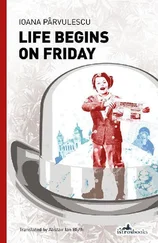Tries desperately to close her eyes, Ava says.
Tries desperately to close her eyes. The little prince puts his arms around the neck of the little giraffe and presses his face into her furry coat. The little giraffe’s coat is warm. The moon is shining through the window. The little giraffe says, I’m hungry. I’d like a glass of milk. The little prince gets up. The hallways in the castle are dark and very cold. In the kitchen the fat cook is sitting by the warm stove doing a crossword puzzle. She says, It’s a good thing that Your Grace has come just now. Your Grace probably knows what falls from the sky and has four letters. And Your Grace probably wants a glass of hot milk?
*
Ava is lying on Stella’s arm, her head on Stella’s stomach. Her black hair is soft; her entire body is soft. She’s twisting the buttons on Stella’s cardigan; she sighs. She loves simple sentences; Stella knows that Ava is happiest with a story in which nothing actually happens. A story without a point, maybe also without any excitement, a story that tells about the uneventfulness of all days, about everything staying the way it is.
What falls from the sky and has four letters?
Rain. Rain falls from the sky and has four letters.
Snow also falls from the sky. Can I wear my red rubber boots tomorrow? No matter what? Even if it doesn’t rain?
Tomorrow you can wear your red rubber boots, no matter what, even if it doesn’t rain.
We were going to call Papa.
We’ll do it tomorrow. Sleep well, Ava. Go to sleep quickly.
Stella leaves the door ajar and the light on in the hall outside the three rooms. She stands in the living room next to the armchair by the window; turning on the floor lamp, she looks at her reflection in the picture window, and behind her own reflection, the night-time garden, the fence, the street lamp and the street; the images slide into each other, depending on how she looks at them. Stella turns the lamp off again. She sits down at the table in the kitchen and makes a list of the things she wants to remember — light bulbs, coloured oak tag for Ava, ask Walter about medication allocation, letter to Clara, weekend shift schedule, apples and pears — she feels there’s something else she should write down, that there was something she forgot; she can’t think what it could be, and finally she gives up. The radio is softly playing classical music, series of discreetly withdrawn notes. Stella sits at the table holding a pen; she thinks that sitting here doing nothing at the day’s end must be a sign of old age. How did she go to bed before? Before Ava? In the years with Clara, in the years before the decisions for this or that life or a completely different one were made. It seems to Stella that they used to go to bed while talking. Went to sleep still talking, got up again, talking. Went to bed drinking, smoking. Indignant or shaken — by what, actually? — or drunk. Used to fall asleep and wake up again precipitously. Everything was important. Everything was important.
The stillness at the kitchen table, the meaning of Ava’s sleep, that her own encounters are limited to Jason, Paloma, Dermot, Walter and Esther, is odd. Suspect, as if it should mean something.
But I like being alone, Stella says aloud into the kitchen. I like being alone. Before this I didn’t like being alone; now I just am.
She says, Mister Pfister presumably likes being alone too.
Mis-ter Pfis-ter.
What is Jason doing now, alone at the construction site, in the house without a roof, with doors of corrugated metal and floors of Alaska cedarwood. What is Jason doing? With whom actually would Jason like to talk?
*
Stella gets up from the table, runs water into the kettle, puts the kettle on the stove, and stands there until the water boils. She listens to the sound of the gas flame, the voice from the radio, the gradual bubbling of the water. She stands in the kitchen, waiting.
Rain.
Ava puts on her rubber boots, rain coat and rain hat, and, having done that, she looks long and seriously at herself in the mirror.
Stella pulls on her rain cape.
She goes to get the newspaper from the delivery man at the garden gate before he can drop it into the mailbox. Then she takes Ava to kindergarten on her bicycle and picks up Walter’s keys from the office, arriving too late to have coffee with Paloma; she probably came too late intentionally. At Walter’s house the porch door is wide open and the dampness hangs like a mist in the room, like fog. Walter’s canaries are squeezed close together on the perch in their cage. Walter, lying on his side in bed, is pretending to be asleep, as if he had arranged it with Esther. Stella gently touches his shoulder. Would you like to get up, Walter?
Walter would not like to get up. Stella knows that she ought to force him to get up, but she feels much too weak herself. Walter is in his mid-fifties; he has multiple sclerosis. He was an architect, unmarried, childless; he likes to mention that he was an attractive man before the illness confined him to bed. Stella does not know him as an attractive man. She knows him as a patient, in need of help, dependent on her, ill. She knows his spit, his digestion, the smell of his urine. There are models of his work in the room: bridges and halls. Walter built mainly bridges and halls. Stella can’t imagine his attractiveness, but she is touched by the delicacy and precision of the models, the accuracy and concentration that Walter was once apparently capable of. Whenever he wants to drink something nowadays, she has to put the straw to his mouth, to hold it in his mouth. On the wall around Walter’s bed are posted pages of a newspaper series in which people talk about their dreams, having allowed themselves to be photographed for the series with closed eyes. Walter is crazy about this series, about the photos of the women, less about the description of their dreams, more about their faces, about their as-if-asleep faces. He keeps pretending that he’s forgotten Stella’s name and can’t remember his mother any more, but he knows exactly when Wednesday comes around, the day the newspaper series appears. Today is Wednesday; Stella opens the newspaper in Walter’s kitchen. A twenty-year-old blonde girl with an unfriendly narrow face and a dream that Stella doesn’t feel like reading.
Will Walter want to put this girl up over his bed? Stella assumes so. She isn’t sure exactly what it is about these women’s faces that is important for Walter — the closed eyes? They’re to be near him but not supposed to see him in his helplessness? The desire to look at someone’s face when you wake up. The desire as you wake up to see the sleeping face of the person you love. Stella feels she would go crazy if she were to think too long about Walter. Some of the carers consider Walter’s gallery to be psychopathic. Stella doesn’t express an opinion on the subject.
She cleans the bathroom, the kitchen, the refrigerator and the kitchen cabinets. She cleans out the birdcage, puts fresh water into the little dishes, hangs a new branch of hawthorn on the cage bars; the birds are sitting close together silently and reproachfully watching Stella with their black eyes. Carefully she hooks the little cage door shut and goes shopping.
She talks on the phone to Paloma and writes down Walter’s doctors’ appointments for the coming week. She mixes quark, plums and linseed; when she sits down next to Walter’s bed, he doesn’t even want to turn around to her, but he says he would be happy if they were to go to another concert soon. Stella sometimes does that. She goes out with Walter, to the movies, to a concert, to the theatre, and they can each put up with it for about half or three-quarters of an hour; then Walter says he wants to go home; he says it not just once; he says it a hundred times, says it until they’re back again with the wheelchair in the entrance hall of the large house in which his life is now confined to one room. Every time Stella is in complete agreement with what he says. In spite of that she keeps going out with Walter. She has the feeling that the resistance each of them has to overcome makes them both stronger. For a while at least.
Читать дальше












